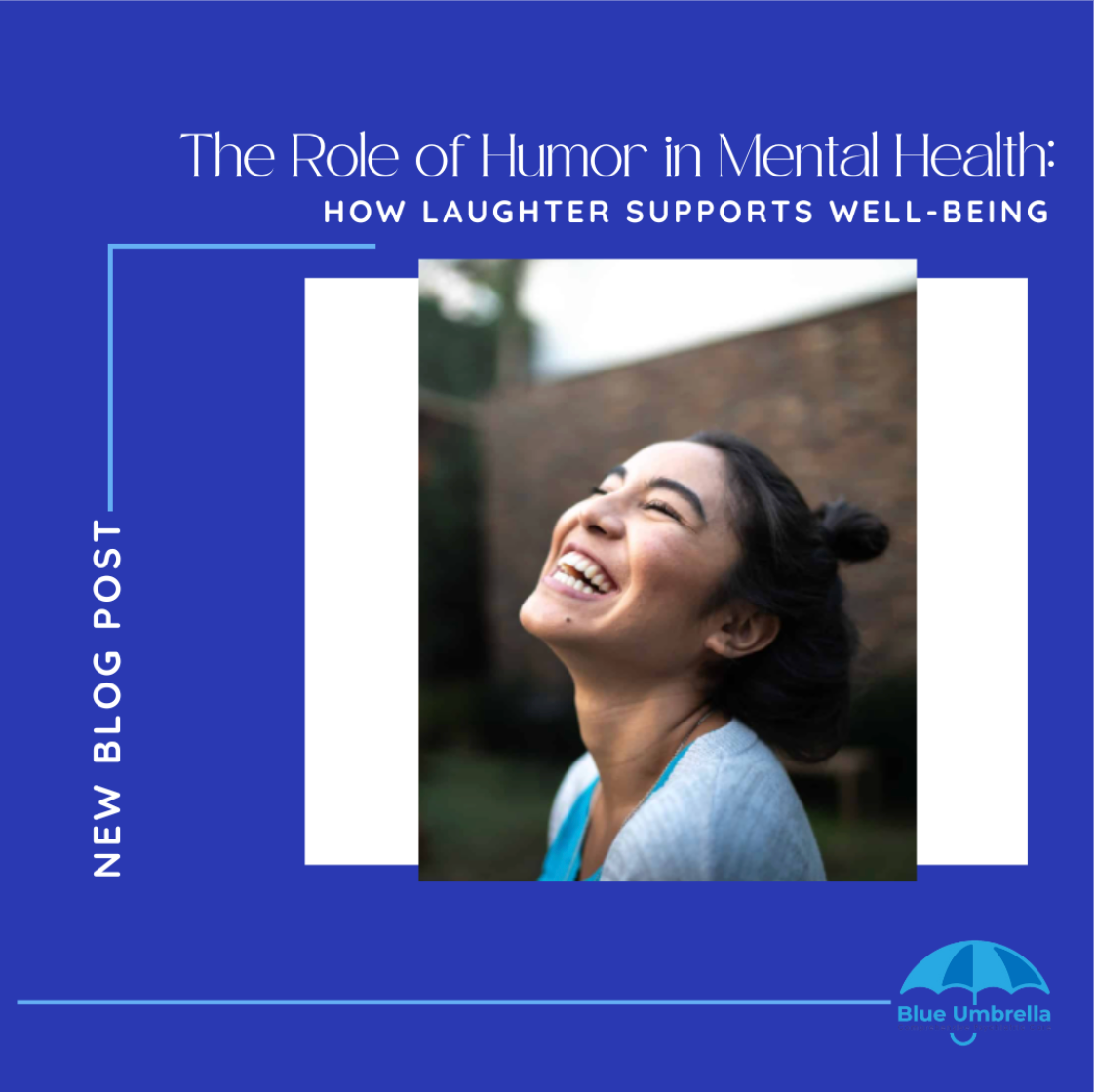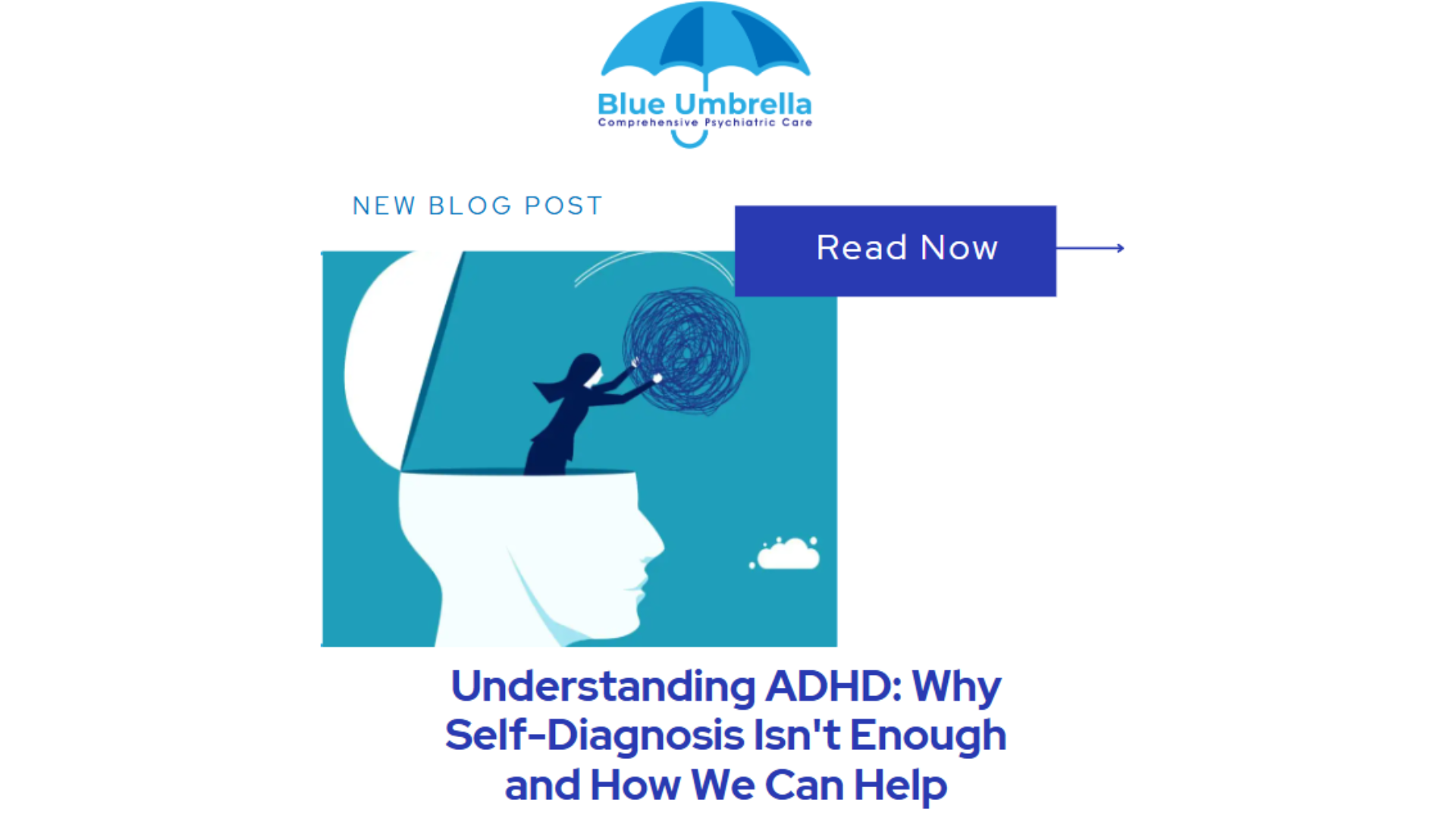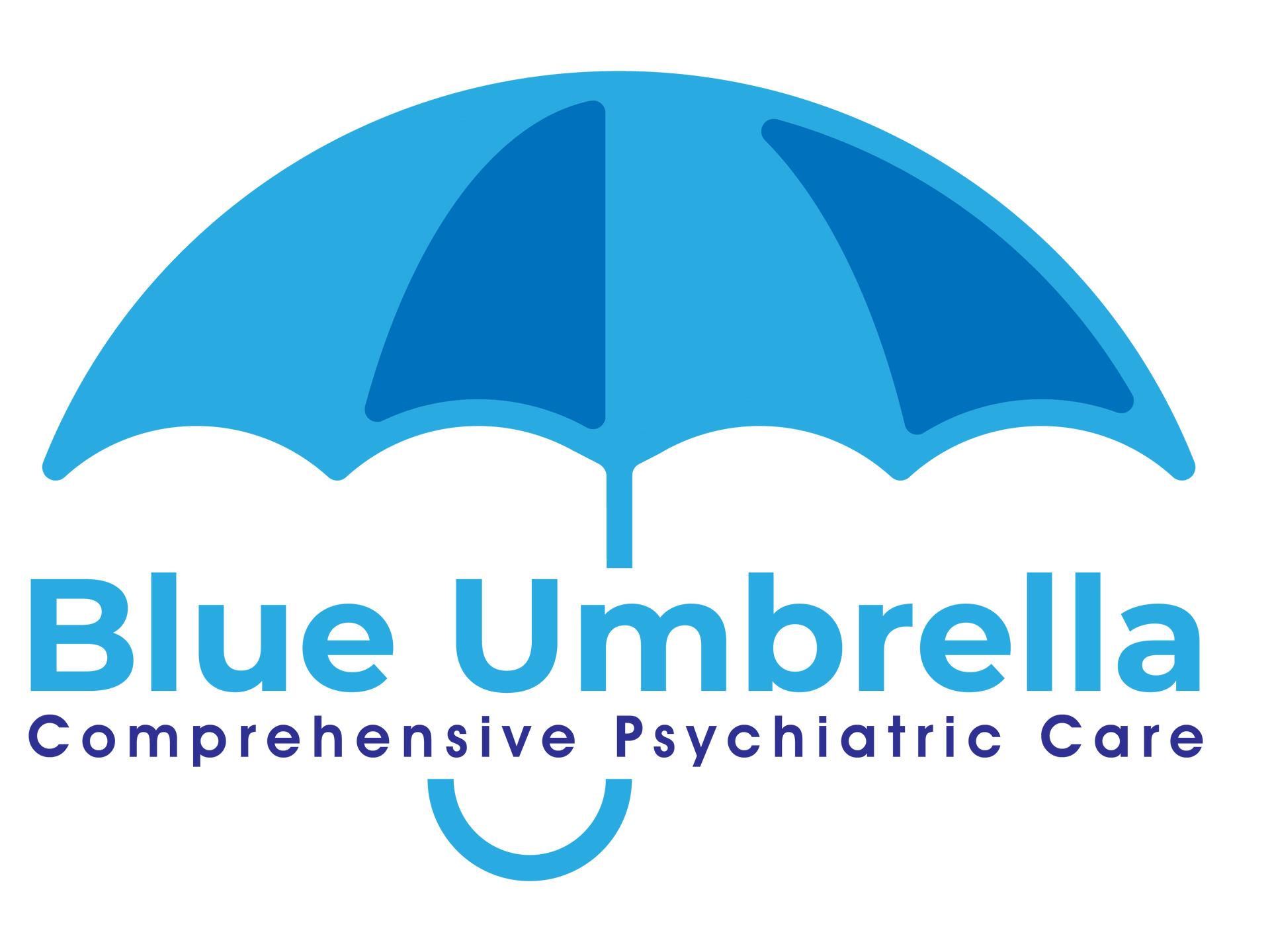
While April Fools’ Day has come and gone, humor still has an important place in our lives, especially when it comes to mental health. At Blue Umbrella Psychiatry, we know that laughter isn’t just a form of entertainment—it can be a powerful tool for improving your emotional and mental well-being. Humor can help alleviate stress, foster social connections, and even improve how we cope with difficult emotions. So, let's take a closer look at how humor and laughter can play a significant role in mental health all year long.
1. Laughter Reduces Stress and Anxiety
Humor is often a natural antidote to stress. When we laugh, our brains release endorphins, the body’s “feel-good” chemicals, which help to reduce stress and improve mood. Laughing not only helps alleviate anxiety in the moment but also helps us feel more relaxed in the long term.
For children and teens, this can be especially beneficial. When they experience stress from school, social situations, or family dynamics, taking a break to laugh can help them reset and refocus. Whether it's sharing a funny video, telling jokes, or just being silly together, humor can provide relief from tension and create a more positive mental state.
2. Humor Improves Coping Skills
Life presents us with challenges, big and small, and humor can be a key tool in coping with them. Humor allows us to reframe difficult situations and view them through a lighter lens. Instead of getting bogged down by a frustrating or stressful situation, a humorous perspective can help us regain emotional balance and foster resilience.
For example, when things don’t go as planned—whether it’s a family road trip that goes awry or a work deadline that’s missed—using humor to laugh at the situation instead of dwelling on the negative can lighten the mood and help everyone involved approach the problem with a more constructive mindset.
3. Building Stronger Relationships Through Humor
Laughter is a social activity that brings people together. Sharing jokes, funny stories, or playful moments can strengthen bonds between family members, friends, and colleagues. Positive social interactions are key to emotional health, and humor plays a major role in making relationships stronger and more resilient.
For families, humor can be a way to connect with children and teens, helping to foster open communication. A well-timed joke or playful moment can break down barriers, making it easier for children to share their thoughts and feelings. This kind of emotional connection can create a supportive environment where everyone feels safe and understood.
4. Humor and Emotional Resilience
Humor is essential for building emotional resilience—the ability to recover from setbacks or adversity. When we face difficult situations, humor provides us with a way to approach challenges with a sense of hope and positivity. It helps us not take ourselves too seriously and reminds us that it's okay to not have everything under control.
For children, this lesson is invaluable. Learning to laugh at life’s little hiccups teaches kids not to be overwhelmed by every obstacle. Instead, they can see challenges as part of life’s journey and find ways to laugh and learn from them.
5. Humor Can Improve Mental Health for Parents Too
As a parent or caregiver, it’s easy to feel overwhelmed by the daily responsibilities and stresses of life. Balancing work, family, and personal time can take a toll on your mental health. However, humor can be an excellent way to relieve stress and give yourself a mental break. It allows you to take a step back and laugh at life’s little mishaps, instead of feeling weighed down by them.
Take time to laugh with your kids or enjoy a funny movie or comedy show to give your mind a chance to rest. Even during tough times, humor can be a way to refresh your perspective and recharge your emotional energy.
6. Fostering Healthy Humor in Your Family
It’s important to create an environment where humor is appreciated and encouraged. While humor can be uplifting, it’s also essential to recognize when a joke crosses a line. Harmless jokes and playful teasing can be fun, but humor should always come from a place of kindness and inclusivity, not at the expense of others’ feelings.
Teach your children how to laugh together in positive ways that promote emotional growth and create strong, supportive bonds. Shared laughter helps families build a solid foundation of trust and love, which is essential for emotional well-being.
7. The Power of Laughter in Reducing Physical Symptoms of Stress
It’s not just our mental health that benefits from humor; laughter has physical benefits as well. Laughing has been shown to reduce the body’s physical stress responses, lower blood pressure, and even relieve tension in muscles. These physical effects make humor a valuable part of any mental health routine.
Encourage your family to laugh together every day. Whether it’s by telling jokes, watching funny videos, or just sharing stories that make you laugh, the physical benefits of humor can help everyone feel more relaxed and better equipped to handle life’s challenges.
Conclusion: Keep the Humor Flowing Year-Round
While April Fools’ Day may be behind us, the benefits of humor don’t have to end with the pranks. Humor is an essential part of maintaining mental health, building emotional resilience, and nurturing relationships. Laughing together, reframing challenges with humor, and using lighthearted moments to reduce stress can improve everyone’s well-being, no matter the season.
At Blue Umbrella Psychiatry, we believe that mental health is multifaceted, and humor is an important tool in supporting emotional well-being. Whether you're seeking advice for yourself or your child, we are here to help with strategies to improve your mental health and make life’s challenges a little bit easier to handle.
For more information or to schedule an appointment, please contact Blue Umbrella Psychiatry at 954-341-5215.













